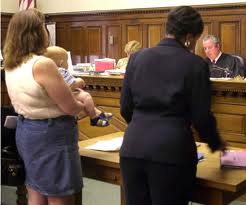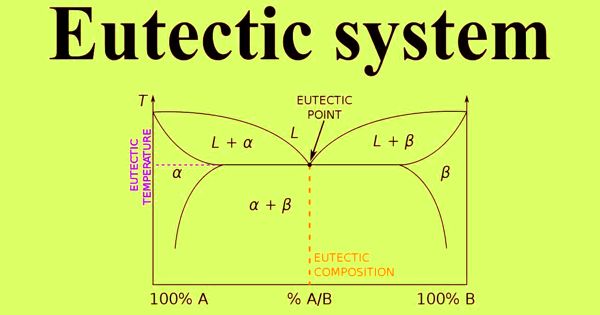The Family Courts Ordinance, 1985
Family courts, which have been established in the country more than twenty years ago, need not be made familiar once again. If you are not a lawyer you may not have to learn the procedure of trial in the courts. It may even not be necessary for everyone to know the jurisdiction of the courts. But you must know your rights to be exercised through family courts. Hence, this write-up aims to make you informed about your dealings with a family court.
By the Family Courts Ordinance 1985 the Family Courts get hold of exclusive jurisdiction for expeditious settlement and disposal of disputes only in suits relating to dissolution of marriage, restitution of conjugal rights, dower, maintenance, guardianship and custody of children. The courts began working all over the country except in the hill districts of Rangamati, Bandarban and Khagrachhari. Soon after the court began functioning, questions were raised about whether the Family Courts would deal only with the family matters of Muslim community or of all communities. The uncertainty lasted for a long time until in 1998 a special High Court bench of the Supreme Court in a path finding judgment removed all the questions regarding family court’s jurisdiction. Every lawyer and judge dealing with Family Courts are supposed to be aware of the judgment. But the common people for whose benefit the courts have been constituted seem still uninformed about the great decision relieving the justice-seekers in the Family Courts of a harming uncertainty. Section 5 of the Family Court Ordinance, 1985 speaks about the jurisdiction of the Family Courts which reads as: “Subject to the provisions of the Muslim Family Laws Ordinance, 1961 (VII of 1961), a Family Court shall have exclusive jurisdiction to entertain, try and dispose of any suit relating to, or arising out of, all or any of the following matters,
namely:-
(a) dissolution of marriage
(b) restitution of conjugal rights
(c) dower
(d) maintenance
(e) guardianship and custody of children
Just after coming into force, the family court comes under confusion, as mentioned above, about its jurisdiction that whether a Family Court is a court for Muslim Community only. In Krishnapada Talukder Vs Geetasree Talukder [14 (1994) BLD 415] the question was whether a woman, Hindu by faith, could file a suit in a Family Court for maintenance against her husband. The honourable judge of the High Court Division held that “As per the provisions of the present Ordinance, all the sections of the 27 section statute have been made available for the litigants who are Muslim by faith only.”
The said judgment came on 5th June 1994, and just a few days later on 25th July 1994 in Nirmal Kanti Das Vs Sreemati Biva Rani [14 (1994) BLD (HCD) 413], the High Court Division expressed diametrically opposite view. The learned judge of the High Court Division referring section 3 of the Ordinance held that the provisions of Family Courts Ordinance shall have effect notwithstanding anything contained in ‘any other laws’ for the time being in force. From the expression ‘other laws’, it appears that the Family Court Ordinance controls the Muslim Family Laws Ordinance, 1961, and not vice versa. Thus, any person professing any faith has a right to bring a suit for settlement and disposal of disputes relating to dissolution of marriage, restitution of conjugal rights, dower, maintenance, guardianship and custody of children. And so, a Hindu wife is entitled to bring a suit for maintenance against her husband in a Family Court.
In Meher Nigar Vs Md Mujibur Rahman [14 (1994) BLD (HCD) 467] the High Court Division corroborated the abovementioned view by holding that the Muslim Family Laws Ordinance 1961 introduced some changes in the orthodox Muslim personal laws relating to polygamy, <>talaq<> and inheritance and in order to keep those reformative provisions of the Ordinance of 1961 effective it has been provided that the provisions of Muslim Family Laws Ordinance of 1961 shall not be affected by the provisions of the Family Courts Ordinance of 1985; and section 23 of the Family Courts has specified the area not to be affected. It otherwise indicates that the provisions of the Family Courts Ordinance are applicable to other communities which constitute the populace of Bangladesh. Following such dissimilar views and decisions, the confusion regarding jurisdiction of the Family Court was natural. And such confusion continued until 1997 when a larger bench of the High Court Division of the Supreme Court in its path-finding judgment in Pochon Rikssi Das Vs Khuku Rani Dasi and others [50 (1998) DLR (AD) 47] removed all the confusions. The special bench of the High Court Division comprised of three Judges upheld that “the Family Court Ordinance has not taken away any personal right of any litigant of any faith. It has just provided the forum for the enforcement of some of the rights as is evident from section 4 of the Ordinance, which provides that there shall be as many Family Courts as there are Courts of Assistant Judge and the latter courts shall be the Family Courts for the purpose of this Ordinance.
Moreover, the court also declared that ‘Family Courts Ordinance applies to all citizens irrespective of religion’.
It seems quite pertinent to refer some of the submissions which the Court relied on. It was submitted that:
If Family Court Ordinance is intended to apply only to the Muslim community then there was no reason for not providing it accordingly as has been done in case of Muslim Filmily Laws Ordinance, 1961. The Family Courts Ordinance should have been named as Muslim Family Courts Ordinance. …….in the Family Courts Ordinance there was no exclusive exclusion of any community and unless there is specific exclusion the law will have general application, that is, it will apply to the citizens of all faiths. ….. if sections 3, 5, and 24 of the Family Courts Ordinance are read together it will be evident that guardianship and custody of children were made exclusively triable in the Family Courts and unless the law is applicable to all how a non-Muslim can get a relief in the said matters. …… 5 matters enumerated in section 5 of the Family Courts Ordinance are matters of personal laws of the citizens of different faiths who follow different rules in matters enumerated in the section or do not have any rule at all as in the case of Dower and Dissolution of Marriage in case of Hindus. All citizens may not be concerned in all matters but that cannot be a ground to hold that the Ordinance applies only to the Muslims. ……Family Courts Ordinance has not encroached upon the personal laws of the citizen of any faith. This Ordinance provided that Family Courts will have jurisdiction to entertain and decide suits on the matters enumerated in section 5 subject to the provisions of the Muslim Family Laws Ordinance meaning thereby that while disposing of a matter amongst the Muslim the provisions of Muslim Family Laws Ordinance shall have to be kept in mind. …..had there been no exclusive jurisdiction of Family Courts there may be complications in cases filed by husband and wife professing different faiths. ….not all the personal laws of the Muslim have been included in section 5. Some provisions of Muslim personal laws such as Waqf, Gift, parentage etc. have been kept out of the provisions of the Family Courts Ordinance. So it cannot be said that this is only for the Muslim.
Accordingly, there should not remain any confusion regarding the jurisdictions of the Family Courts. Henceforth, it seems needless to mention that a Family Court can try suits under The Hindu Married Women’s Right to Separate Residence and Maintenance Act 1946, the law that has given a right to the Hindu wives to live in separate houses and to get the maintenance, but has not provided any forum to go to enforce the rights.
Another matter needs to be clarified that the Family Courts Ordinance does not extend to the hill districts of Rangamati, Bandarban and Khagrachhari. The fact is that initially the hill districts used to be governed by Hill Districts Regulation of 1900 and it was repealed in 1983 but as no new law has been introduced for administering the area, as per provisions of General Clauses Act, the repealed law is still in force and the Hill Districts Regulation is still continuing, resulting in exclusion of Family Courts there. This does not mean that tribal people cannot take recourse to a Family Court. The suits among aboriginal or adivasi or tribal people can be tried by a Family Court if they reside within the local limits, that is, territorial jurisdiction of the Family Court.
















